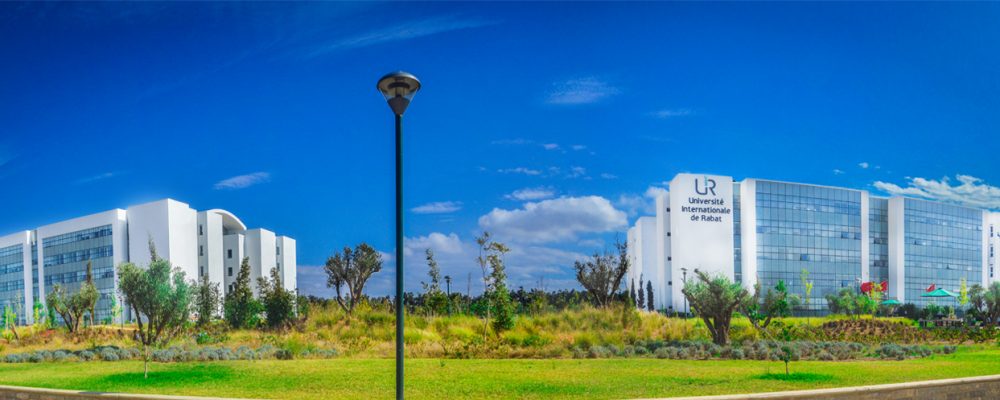PTScientists partners with the International University of Rabat, Morocco
PTScientists and the International University of Rabat (UIR) partner to give students an out-of-this-world opportunity
New partnership will enable students to work on Mission to the Moon
The International University of Rabat (UIR) and Berlin-based space company PTScientists have signed a Memorandum of Understanding. The agreement will see benefits for both partners, with students gaining a unique opportunity to work on a genuine space mission, while PTScientists will advance their educational and technology development goals, by accessing fresh engineering talents.

“It is an incredible opportunity for Morocco and for the students”
- Prof Essadiqi
PTScientists are working on a reducing the cost of exploration and undertaking a commercial mission to the Moon. This new partnership opens the possibility that students at UIR could see their work reaching the lunar surface.
Mission to the Moon aims to be the first non-governmental mission to the lunar surface, and will see a pair of Audi lunar quattro rovers delivered to the Moon using a spacecraft designed by PTScientists, and launched by SpaceX.
PTScientists has technology partnerships with both Audi and Vodafone, and is pleased to welcome this academic partnership with UIR. “The university has a clear focus on aerospace, technology, and engineering, so we’re excited to partner with them to develop new space-grade technologies for exploration beyond Earth orbit” says Robert Boehme, CEO of PTScientists.
In the short-term, work will include developing small scale sensor packages that can be integrated with their Audi lunar quattro rovers and the ALINA lunar lander which will transport them safely to the lunar surface.
Experiments and instruments will be developed by the students during joint-study courses, and as part of internships both at the University campus in Morocco and at the PTScientists facilities in Germany.
Exploration on the Moon throws up a range of technical and logistical challenges, and PTScientists, in cooperation with Audi e-tron, is already working on solutions to optimize and extend the battery life of the rovers, which must survive thermal changes and exposure to radiation.
In the future, PTScientists hope that the partnership with UIR will lead to the joint development of instruments that can withstand the harsh lunar night (when temperatures can drop to -180C for a period of 14.5 Earth days) and technologies for in-situ utilisation of resources on the Moon.
Prof Elhachmi Essadiqi, Dean of UIR’s Aerospace Engineering School (AES) in Morocco, and Prof Mustapha Faqir, Academic Director at AES are delighted to see the Aerospace students of AES participating to this exciting Mission to the Moon with PTScientists.

The partnership came about following a very fruitful meeting with PTScientists and Tridens International in Berlin. “It is an incredible opportunity for Morocco and for the students and faculty members of AES to use their talents in this very challenging mission” said Prof Essadiqi.
“The partnership with PTScientists for this mission will benefit Morocco and will help UIR to be at the leading edge of this uniquely innovative mission in terms of education and R&D, where the students will discover the new frontier toward the space and particularly the Moon.”
- Prof Essadiqi
The partnership between the International University of Rabat and PTScientists was initiated by UIR’s former student, Ismail Hajji and his professor Mfeddal Hilali “We are thankful to Ismail Hajjji, and proud that our strong alumni network continues to show their support for UIR”, the Dean of AES said.
The 2018 Mission to the Moon will land in the Taurus-Littrow Valley, the final landing site of Apollo 17 mission, where humans last stepped foot on the Moon. Robert Boehme comments: “PTScientists are delighted to have a new partner on this unique journey, and we look forward to helping inspire a new generation of rocket scientists and explorers with UIR”.
Notes for Editors:
- Image and interview requests should be directed to: media@PTScientists.com
- PTScientists’s Mission to the Moon is a commercial Moon mission that is due to launch in 2018 on a SpaceX launch vehicle.
- One objective of the Mission to the Moon is to make the first return of a space mission to an Apollo landing site. Apollo 17 landed on the Moon in 1972 and Mission to the Moon aims use its rovers to analyse the remains of one of the original Apollo lunar roving vehicles.
- Together with technology partner AUDI AG, the PTScientists have developed a four-wheel-drive, solar-powered rover that uses Audi quattro drive technology to increase its terrain capabilities.
- In cooperation with Vodafone Germany, PTScientists will deliver the first LTE base-station to the lunar surface, allowing mission experiments and the pair of Audi lunar quattro rovers to use low-power/high bandwidth mobile data for communication on the Moon. This will be the first time a global industry standard infrastructure is being deployed beyond low-Earth orbit.
- The “Université Internationale de Rabat” is located in the capital city of Morocco, Rabat. Its undergraduate, postgraduate and apprenticeship programs are based on academic partnerships with world-renowned and prestigious national and international academic institutions and world-renowned research and industry partnerships aiming to foster innovation through research, advancement through patents for invention and the publication of high-quality articles in the international arena.
- In addition to its highly qualified personnel training mission, the UIR is focusing on R&D and technology innovation on renewable energy according to the strategic priorities of Morocco as defined by “Plan Emergence” and “Renewable Energy Plan”, and on advanced materials to support two of the most strategic sectors in Morocco: Aeronautics and Automotive.

